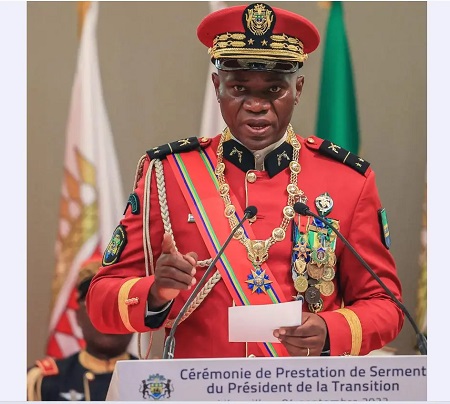
After taking power through a coup, Brice Oligui Nguema has now become Gabon’s transitional president.
Nguema secured a commanding victory in the country’s presidential election, winning 90.35% of the vote, according to provisional results released by the Ministry of Interior.
The announcement, made late Saturday by Foreign Minister Hermann Immongault, confirmed Nguema’s formal rise to the presidency, with 575,222 ballots cast in his favor.
His closest rival, former Prime Minister Alain Claude Billie-by-Nze, garnered just 3.02%, pointing to the vast margin of victory and fueling concerns about the fairness of the electoral process.
Nguema’s path to power began dramatically on August 30, 2023, when he led a military coup that ended over 50 years of Bongo family rule.
The takeover came just minutes after the electoral commission declared then-President Ali Bongo Ondimba the winner of a disputed third term.
The military swiftly annulled the results and placed Bongo under house arrest, citing corruption and institutional failure.
Though Nguema initially promised a transition to civilian rule, critics argue that the electoral process was heavily skewed to benefit the military-backed regime.
Observers point to allegations of voter suppression, lack of transparency, and limited access for independent monitors.
While supporters celebrate Nguema as a national savior and a symbol of stability, critics warn that Gabon may be witnessing a familiar trend: a military leader cloaking authoritarianism with the trappings of democracy.
